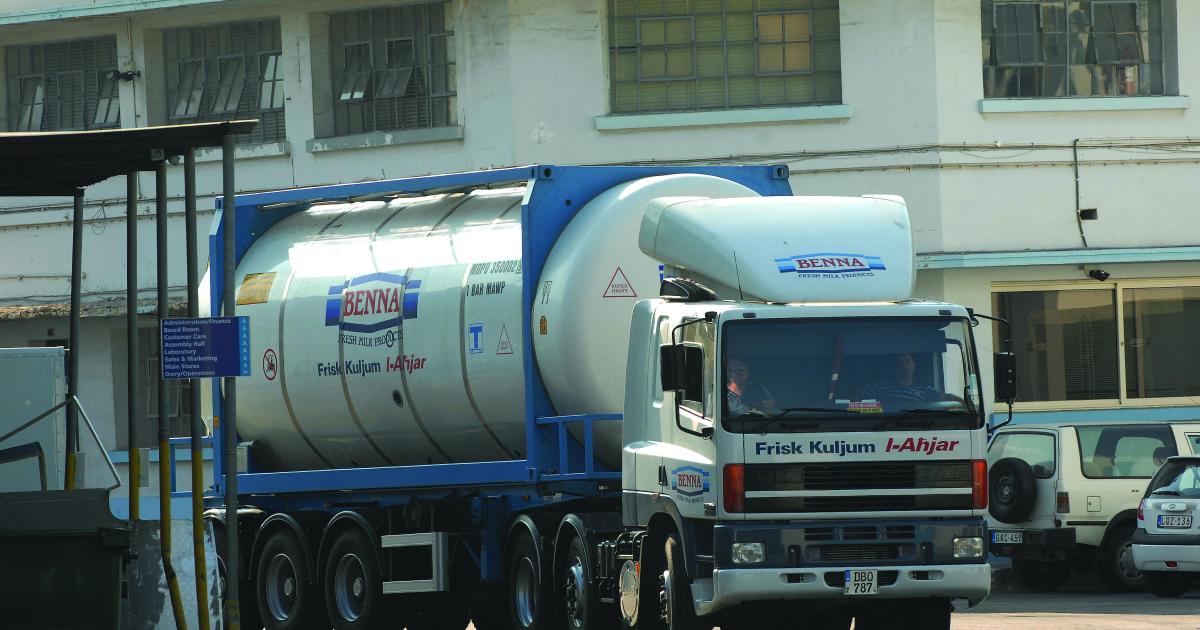Three million litres of foreign dairy products, allegedly from Malta, have been seized in the Ragusa region of Sicily after being falsely labelled as Italian, according to Italian news reports.
However, Malta Dairy Products, the company behind the Benna brand, said it has not been contacted by authorities after Italian media reported that Maltese milk was being passed off as Sicilian.
According to the reports, the products were investigated by inspectors from the Vittoria ICQRF (Central Inspectorate for the Protection of Quality and the Suppression of Fraud in Agri-Food Products), in collaboration with the Guardia di Finanza in Ragusa.
Italian news agency ANSA said the products were accompanied by documentation that falsely indicated Italian origin. In several cases, the milk was also listed as “raw” instead of pasteurised.
The report said the milk was imported from Malta between 2024 and 2025
The product was introduced to the Italian market through local operators, eventually reaching dairies in Sicily and other regions, which used it in good faith to produce cheeses later labelled as Italian.
Italian Minister of Agriculture Francesco Lollobrigida said: “This is a decisive intervention which demonstrates the effectiveness of controls protecting our agri-food supply chain.”
In a statement on Saturday afternoon, Malta Dairy Products said it has not been officially contacted by any authorities and therefore was not in a position to confirm the accuracy or context of what has been reported.
“It is important to emphasise that how and where the milk is used after delivery is entirely the responsibility of the buyer, and falls outside the control of the producer, once the product has been sold and delivered transparently and in line with all legal requirements.”
There are around 6,000 cows across 79 farms on the Maltese Islands.
Malta Dairy Products noted they have been exporting milk to international clients for many years in full compliance with all EU food safety and documentation regulations. This documentation includes information about the milk’s origin and treatment.
The company exports milk, and sometimes cheese curd, to Europe, typically to Italy.
They also explained that Malta’s milk sector operates on a seasonal cycle. For around nine months of the year, the country produces more milk than needed for local consumption, which allows for the export of surplus supply.
However, the company said it has never imported milk.
During the summer months, local milk production typically declines, bringing supply in line with domestic demand.
Asked previously why other countries choose to purchase milk from Malta, a company spokesperson said Maltese milk is “of high quality”.
“The exported milk is often used to produce other dairy products depending on the needs of the receiving market,” he added.
As a company, Benna said it operates under “strict internal quality and traceability systems”, adding it is “fully committed to integrity, transparency, and compliance.
“We have no involvement whatsoever in any form of misrepresentation or misuse of the product beyond the point of sale,” Malta Dairy Products said.
It added the company remains “committed to upholding the reputation of Malta’s milk sector and the trust our brand has built with consumers both locally and abroad.”
In a separate statement, the Ministry for Agriculture said it had not received any communication from the Italian authorities.
“No formal communication or notification concerning this matter has been received from the Italian authorities,” a spokesperson said.
The ministry said Malta remains committed to ensuring traceability and transparency in the food supply chain, and that the Food Safety and Security Authority is seeking information through official channels to understand the basis of the allegations.
“Until such information is provided, any implications of wrongdoing on the part of Maltese producers remain unsupported,” the spokesperson added.
